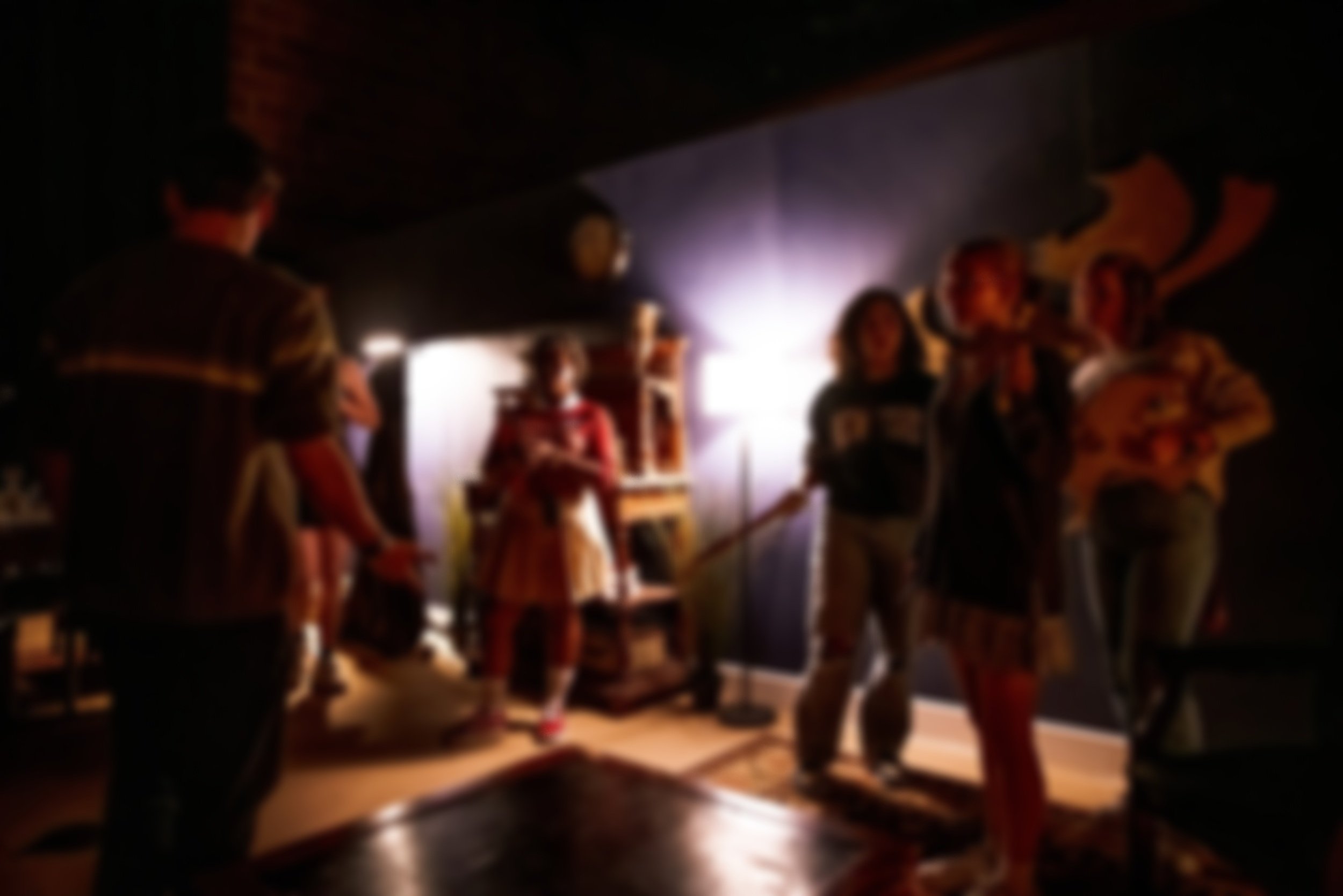
The Crimson Society: Immersive Theatre and Mental Health
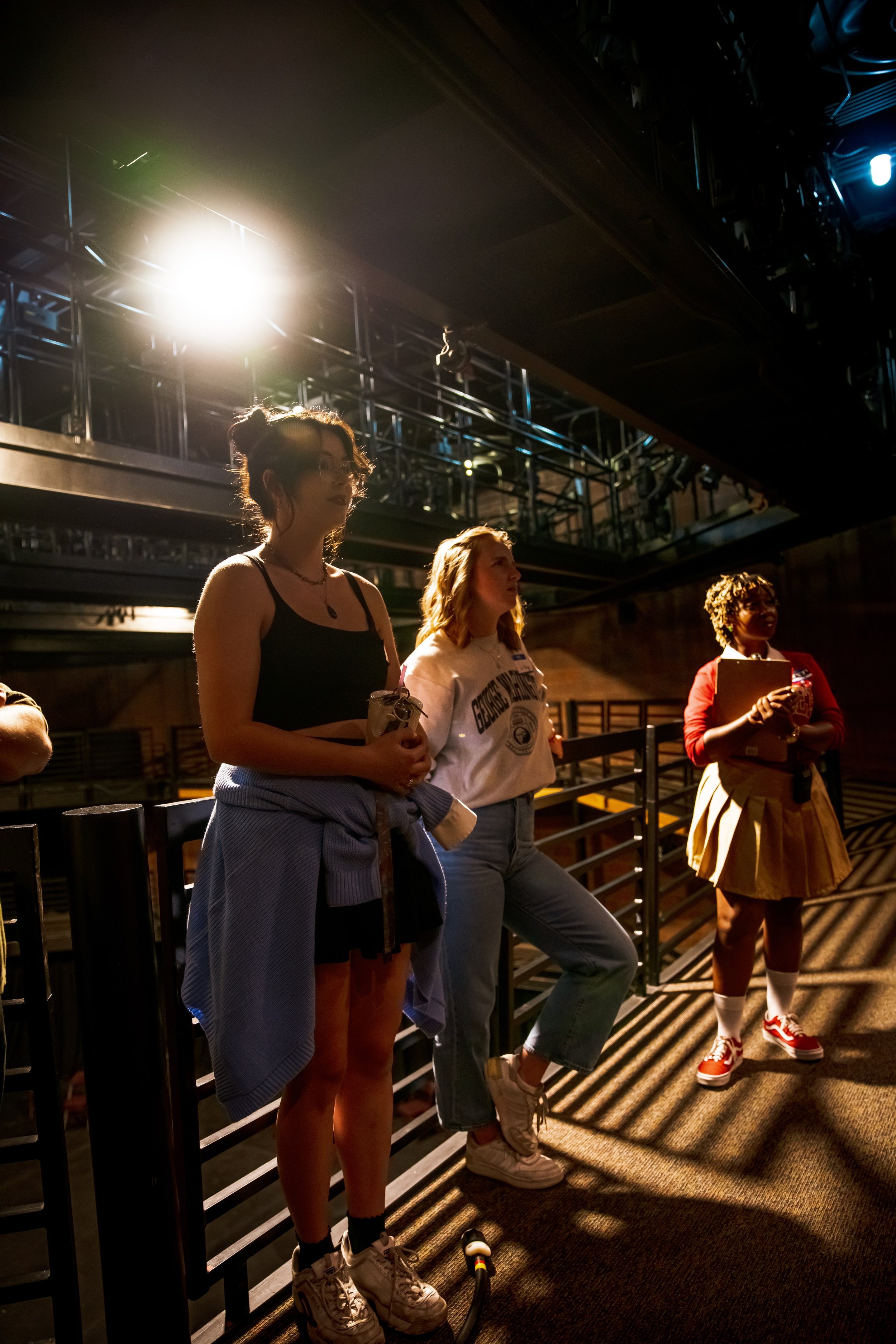
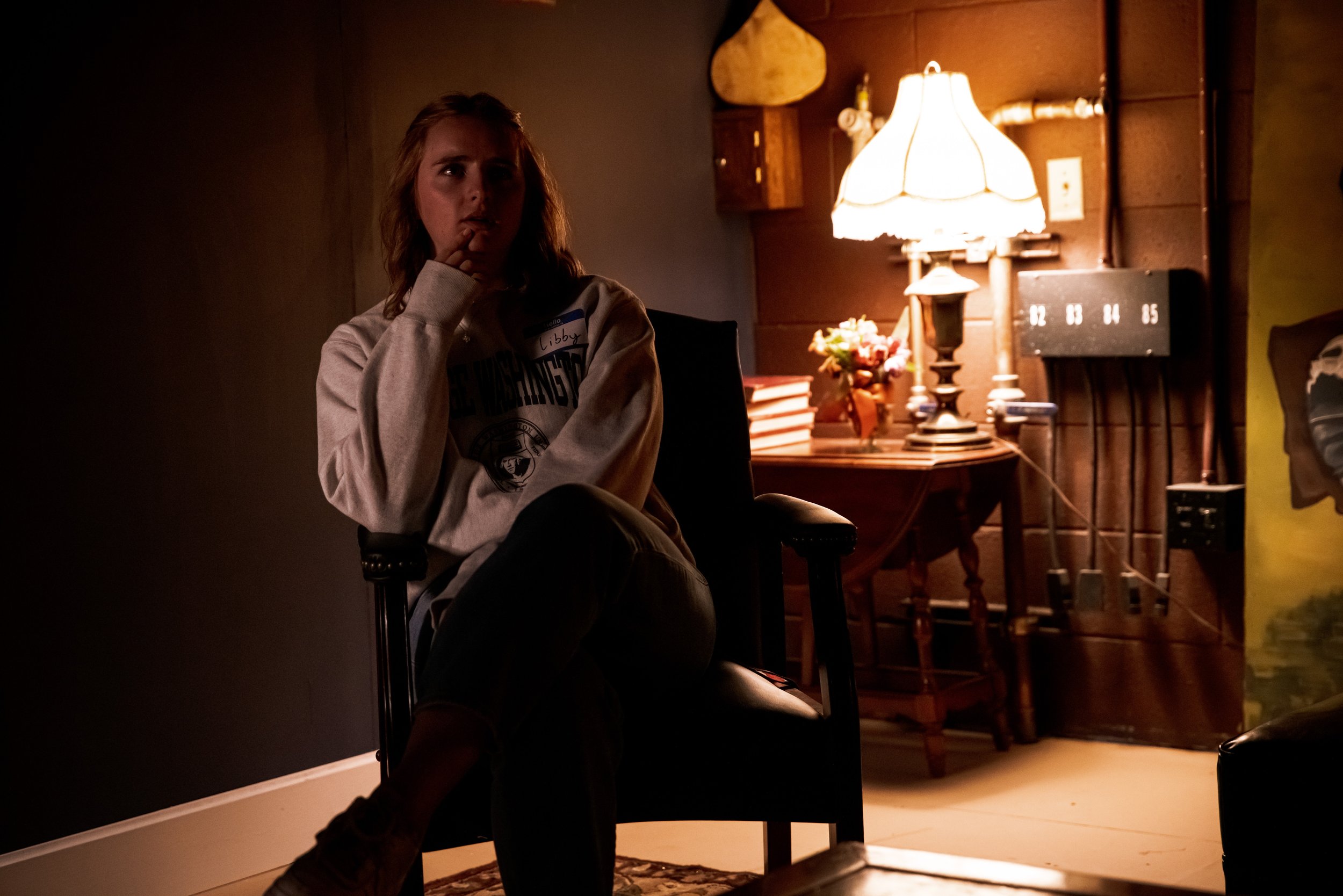
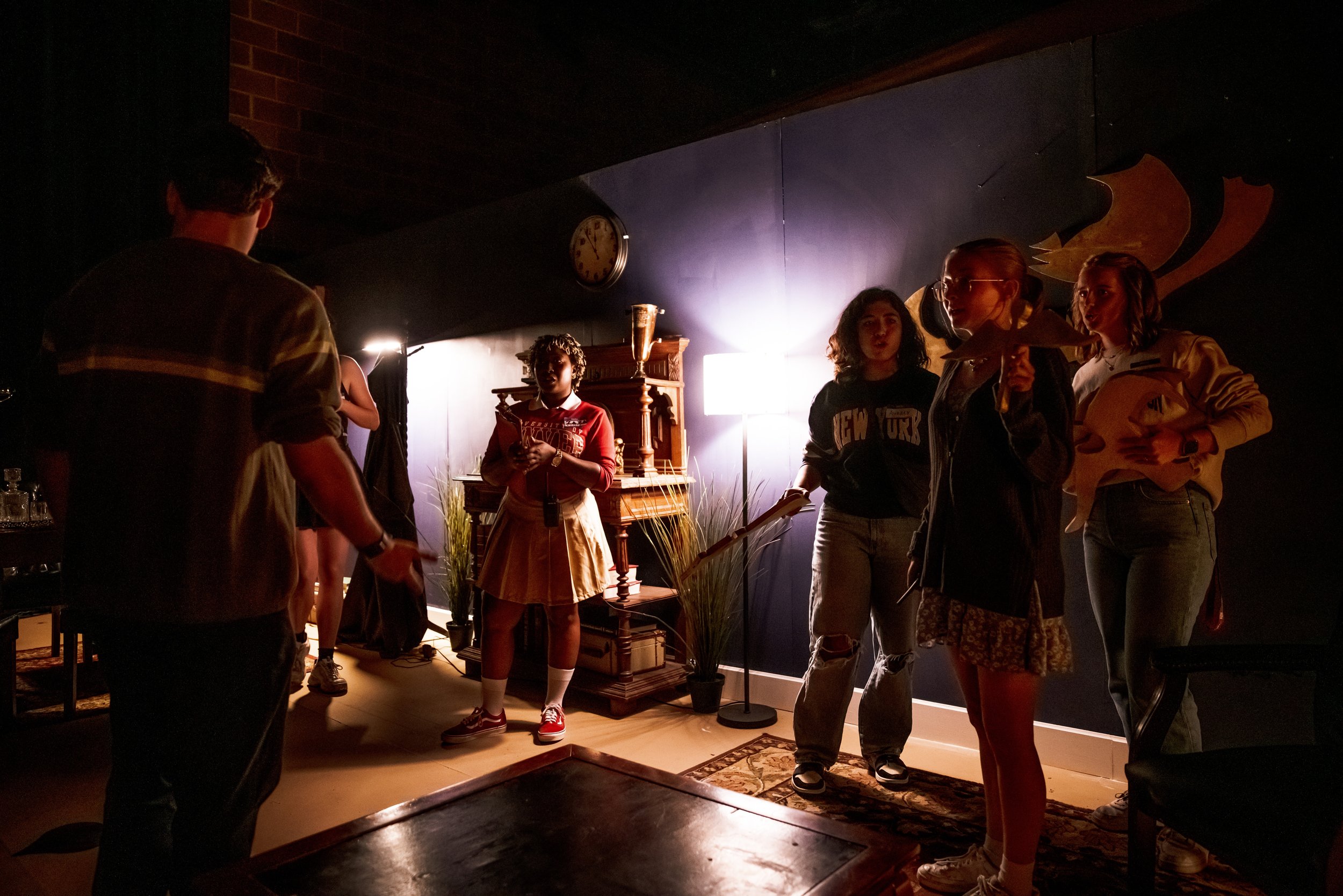
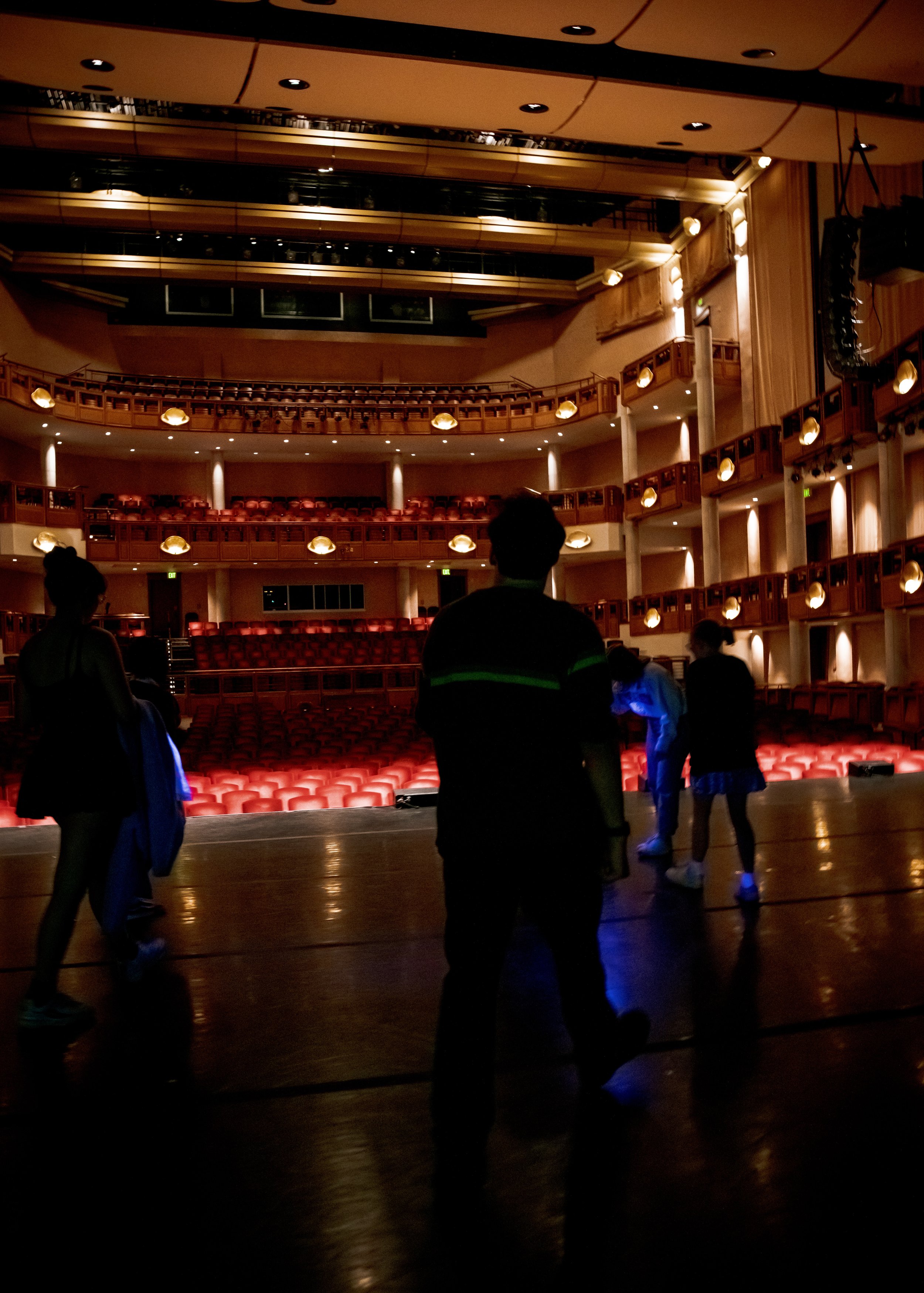

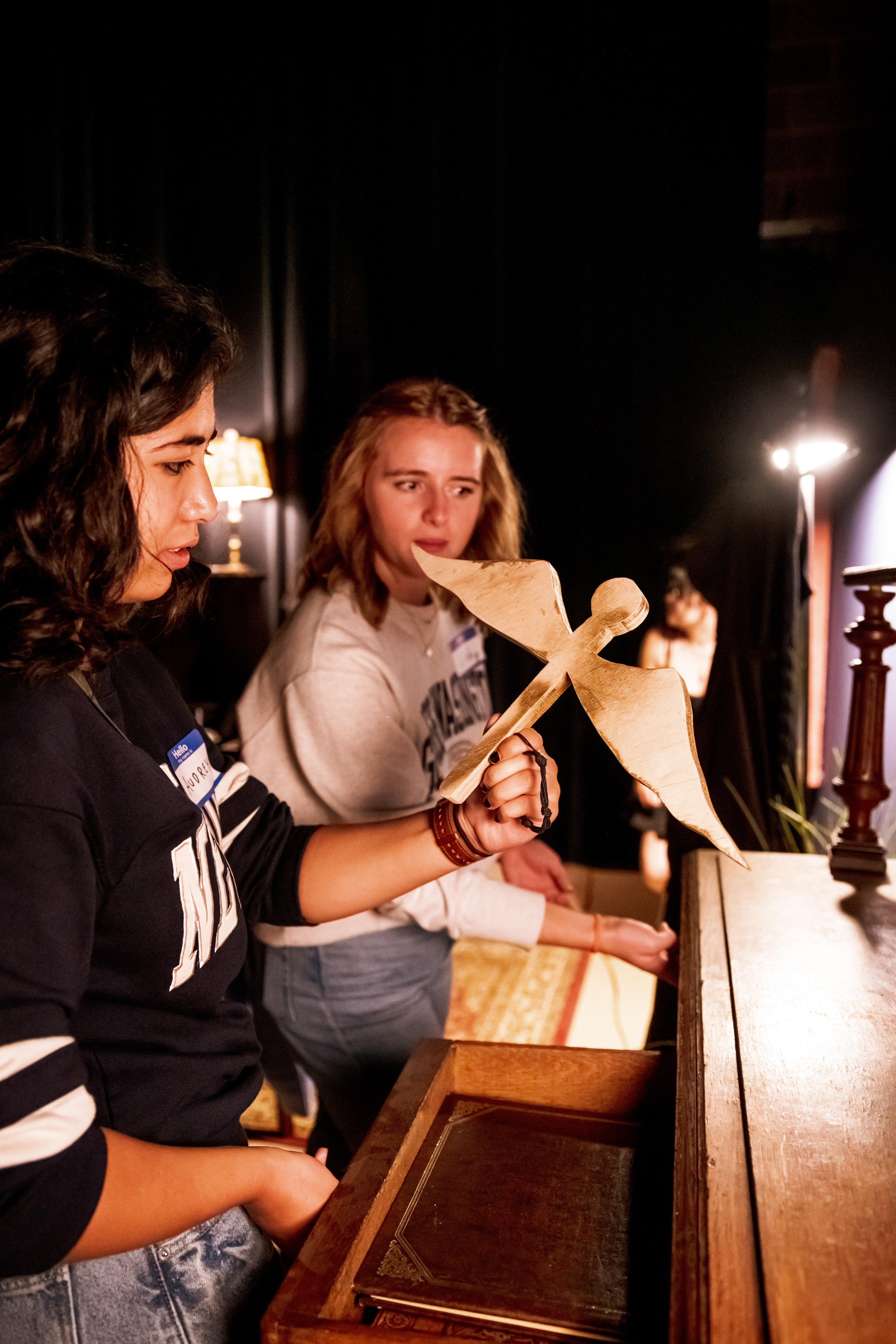
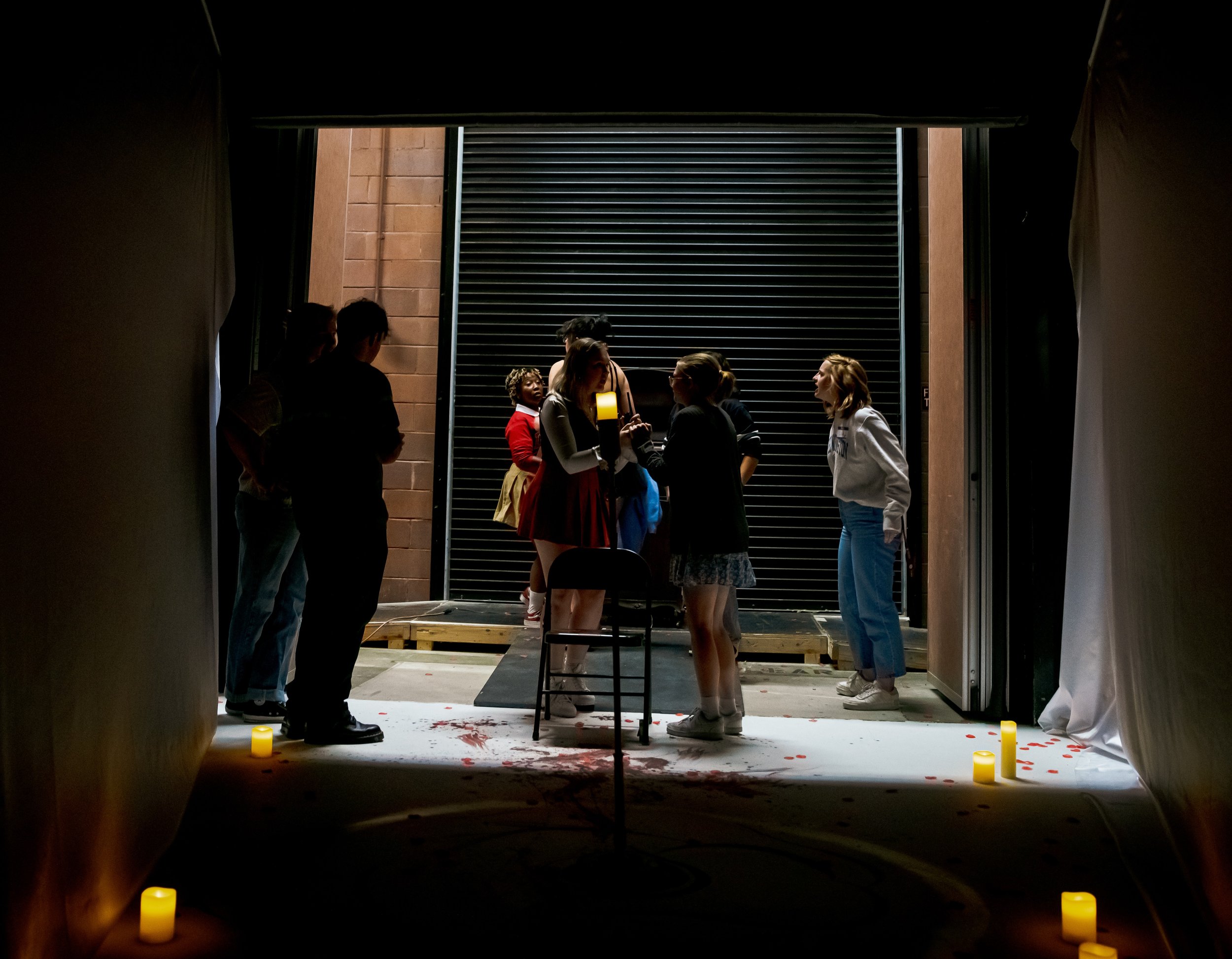
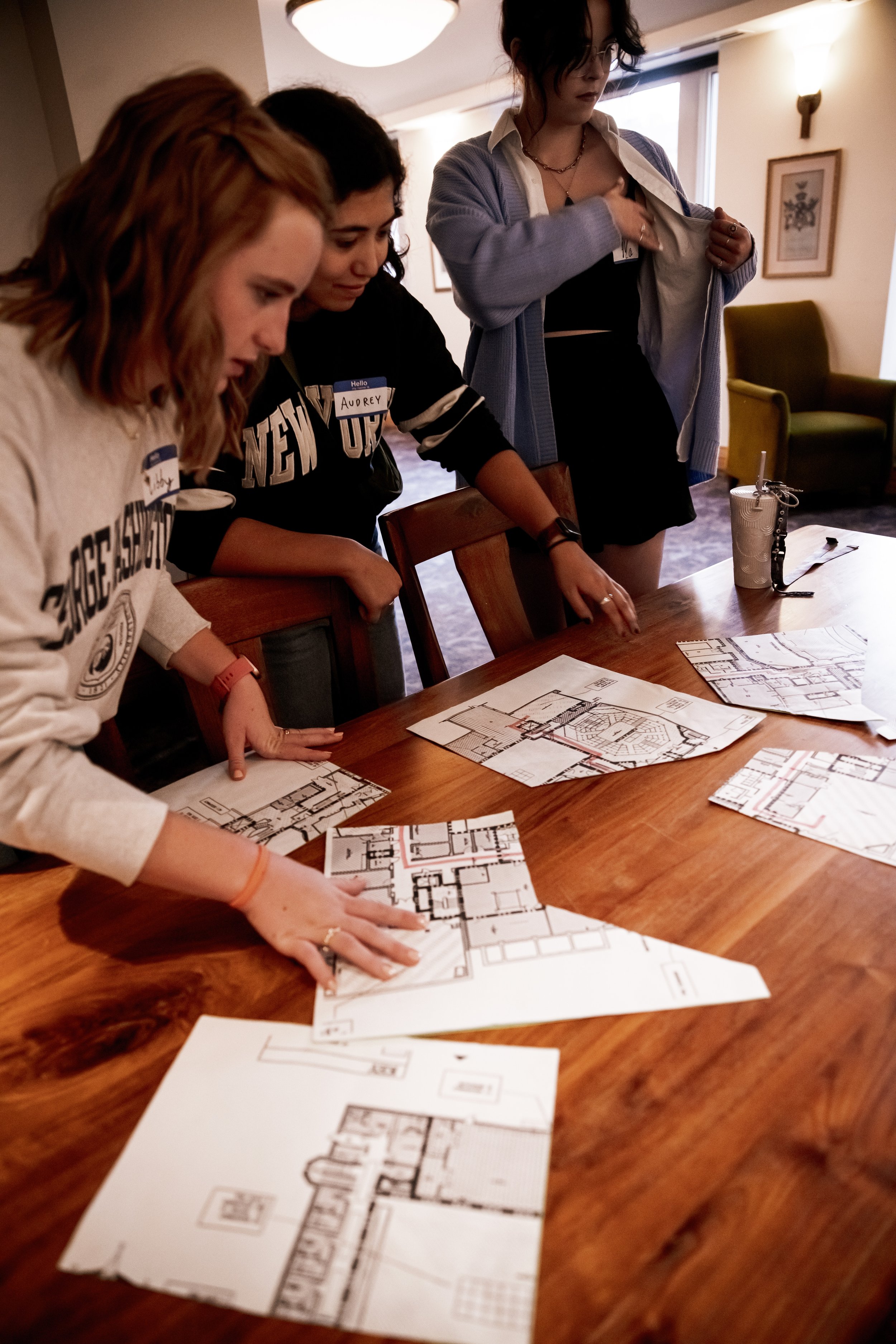
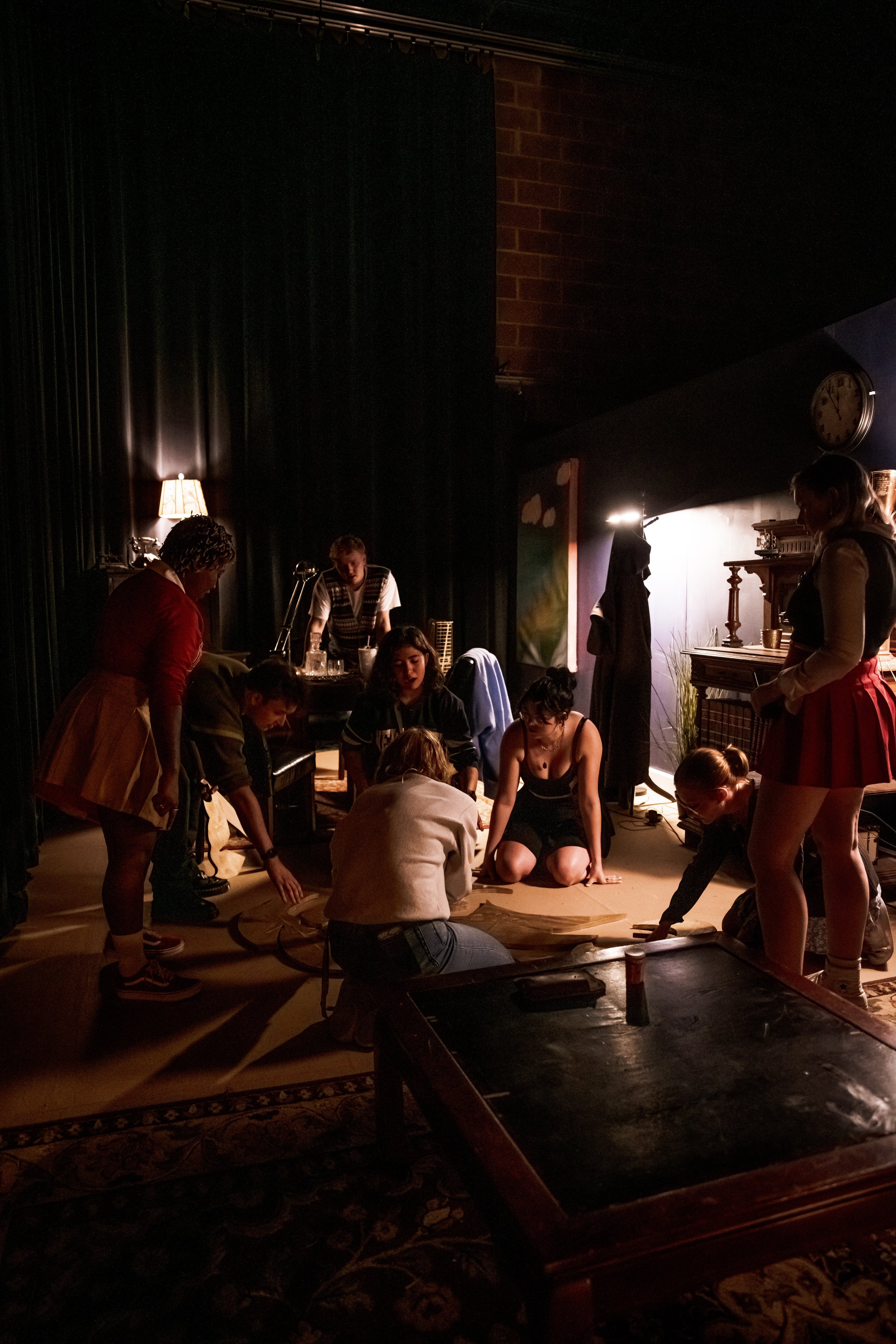
In the past several years, when people have asked what my “dream project” would be, I answered that I was interested in immersive theatre- devising performances that would remove the boundaries of the stage between artist and audience. Furthermore, I wanted to stage it on campus and connect the students with the story. For anyone who was still listening, I would explain my scheme: I would propose this to the Discoveries team, and hopefully have it become part of the first-year experience- providing students an innovative entry into campus life and also finding somebody to pay the bill.
Unfortunately, while I have the organizational and design skills to build an experience, I have been lacking a partner to help write and stage an effective immersive performance.
Then I met Strother Gaines, a grad student in the MSW/MBA programs. He is a seasoned immersive theatre performer and deviser and came to the department looking for a partner to build a new project.
We built a summer project that revolved around building an immersive show: students helped Strother develop and perform the work, and I led the students in devising the design and building the technical aspects. I also coordinated the “venue”- working with the stakeholders in the building to accommodate a 60-minute walking experience throughout the halls and performance spaces in the Newman Center for the Performing Arts.
Their creation was The Crimson Society: the story of DU’s heroic secret society promoting tolerance and wisdom- locked in perpetual battle with the Gilded Circle, a sinister organization with nefarious plans. The show begins with the performers meeting the audience in the lobby to take a seemingly tour of the performing arts center. During the tour, the drama unfolds as a member of the team is kidnapped, and the tour guides draw the audience into their secret circle, leading them through the building in search of a magic key- stolen by Gilded agents-that is the center of the Crimson Society.
The project had an additional dimension- Strother was not only a theatre maker, but a social worker- he has been researching the possibility of using immersive theatre to promote mental health. The script of the play incorporated ideas from his research and posed ethical dilemmas for the participants. Strother used the project as a pilot for his research and hopes to develop it in the future.
Research Awards supporting the Immersive project.
Immersive Theatre and Mental Health
Dean’s Award for Interdisciplinary Studies (DAIS) with Kate Ross/GSSW-2023 ($5000)Immersive Theatre and Mental Health
Creative Arts Materials Fund (CAMF) 2023 ($2500)College of Arts, Humanities and Social Sciences
Summer Research Grants
(4 students @ $3000 each)